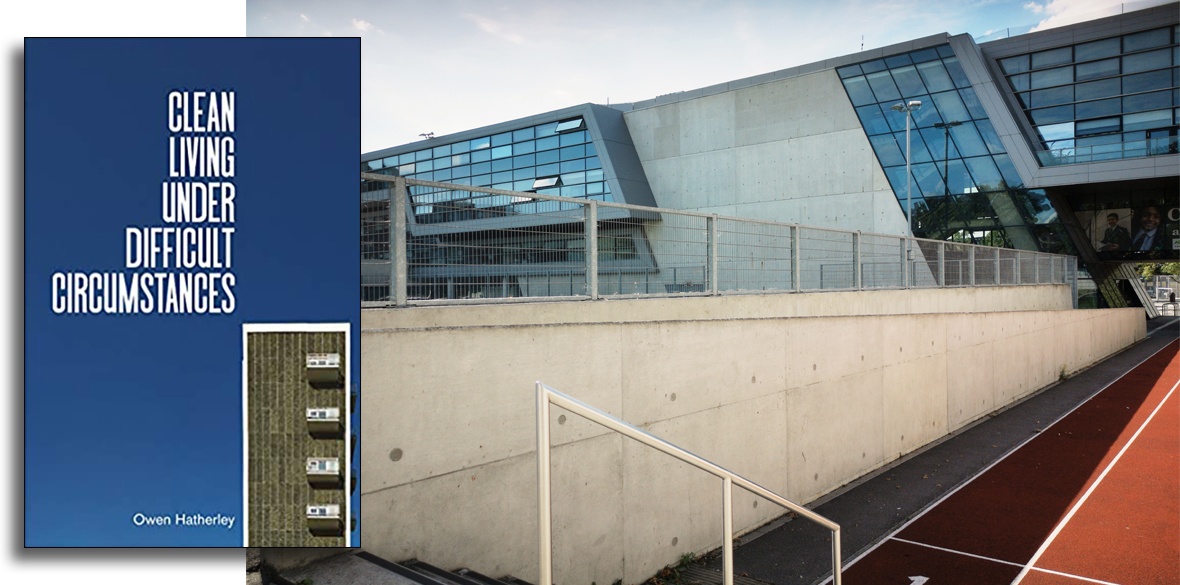This is the last article you can read this month
You can read more article this month
You can read more articles this month
Sorry your limit is up for this month
Reset on:
Please help support the Morning Star by subscribing here
Clean Living under Difficult Circumstances
by Owen Hatherley
(Verso, £18.99)
IN THE introduction to Owen Hatherley’s essay collection, he emphasises that the “difficult circumstances” his book covers are those which define our society and which must be addressed by collective human effort and ingenuity, rather than the individual selfishness promoted by governments today.
Hatherley argues that 2010s’ austerity is only the latest episode of a grim assault and that before then New Labour’s “means-testing, part-privatisation and dismantlement” of the welfare state was all the more galling, because it was supposedly the government working-class people needed.
For Hatherley, modernism is the collective spirit repudiated by all sides of the governing class.
The modernism he has sought to articulate and rehabilitate is underpinned by a faith in people and the future, one built by all and for all, using shared powers to think through problems and act radically to resolve them together.
The essays explore this belief across a broad range of subjects, not just architecture, for which he is best known, but also music, film and literature and keeping the faith in an era when modernism has not so much disappeared as left traces, deprived of its once formidable political energy.
In the 2010 essay A High-Performance Contemporary Life Process, he evaluates the shiny ruins of architecture’s gutted avant-garde.
A far cry from the radical visions of the 20th century, it’s manifested by Zaha Hadid designing an ambitious, commercially funded academy whose idea of French lessons is to “do Napoleon” so that “pupils learn about motivational leadership.”
So much for the shiny ruins, but does Hatherley find a home in them? And where?
There are momentary glimpses: the richness of vision and activity in the planning of 20th-century Warsaw or the “acid communism” of Mark Fisher.
And there’s Andrew Jordan’s beguiling poetry and propaganda, revealing Hampshire’s landscape and resisting its military-archaeological industrial complex, be it through anti-shopping malls or a proletarian children’s revolution.
This last essay stands out because it is not overshadowed by a sense of passing or lost opportunity as others are.
Modernist faith in the future keeps getting trapped in the past and many essays in this collection present a compelling idea only of what the future used to look like and melancholic reportage on where it’s going.
But occasionally, as when reviewing Jordan’s work or conceiving the Socialist Lavatory League, Hatherley engages with history that refutes both capitalist depredation and the nostalgia of yesterday’s modernist dreams.
Hatherley seizes on those dreams and transforms them into new and riotous visions, where the people take control of their own destiny in ways unimaginable to the ruling class.
As such, his is a valuable exploration of the many modernist projects that have defined our society and politics.











